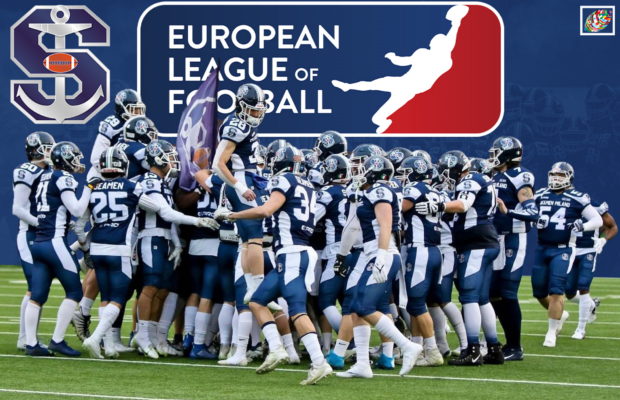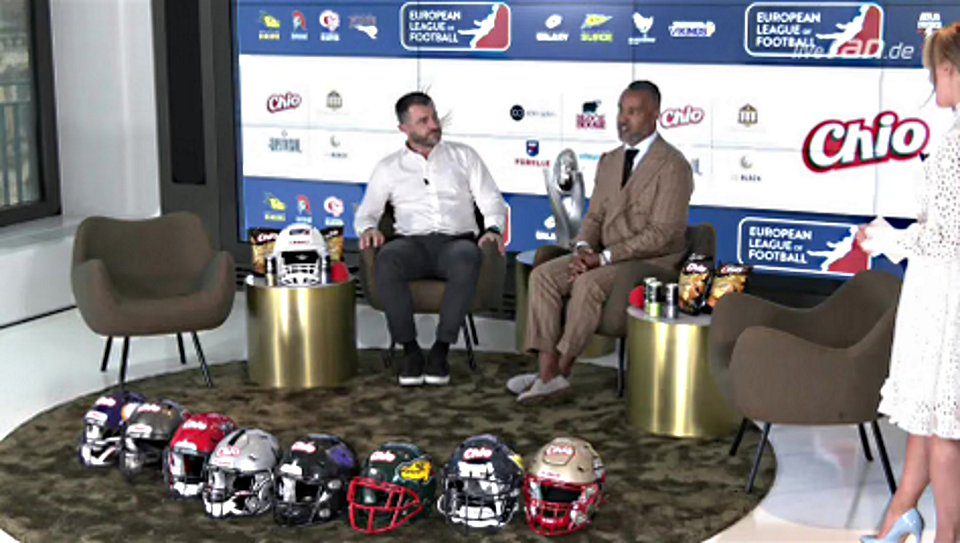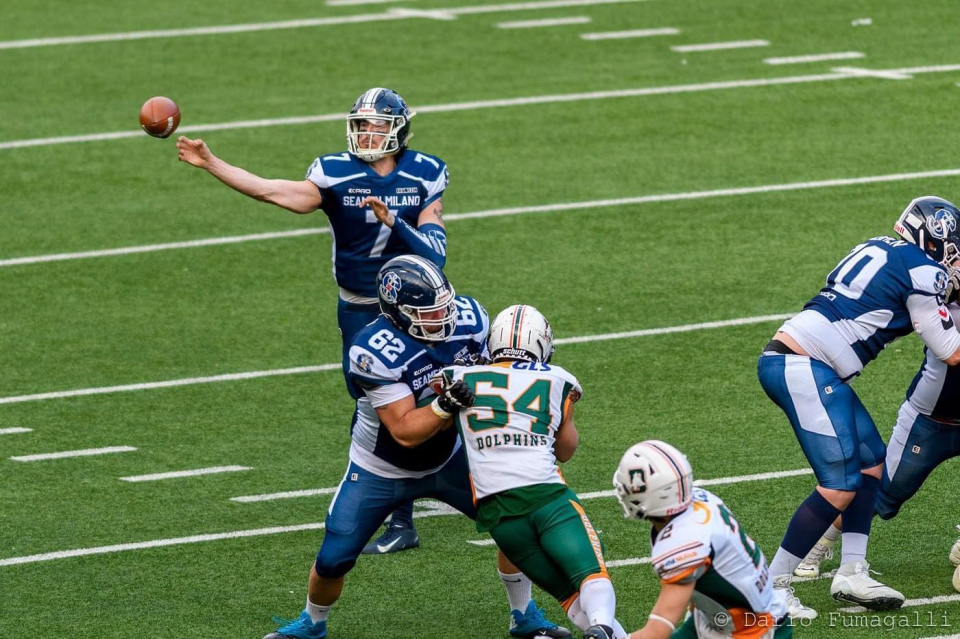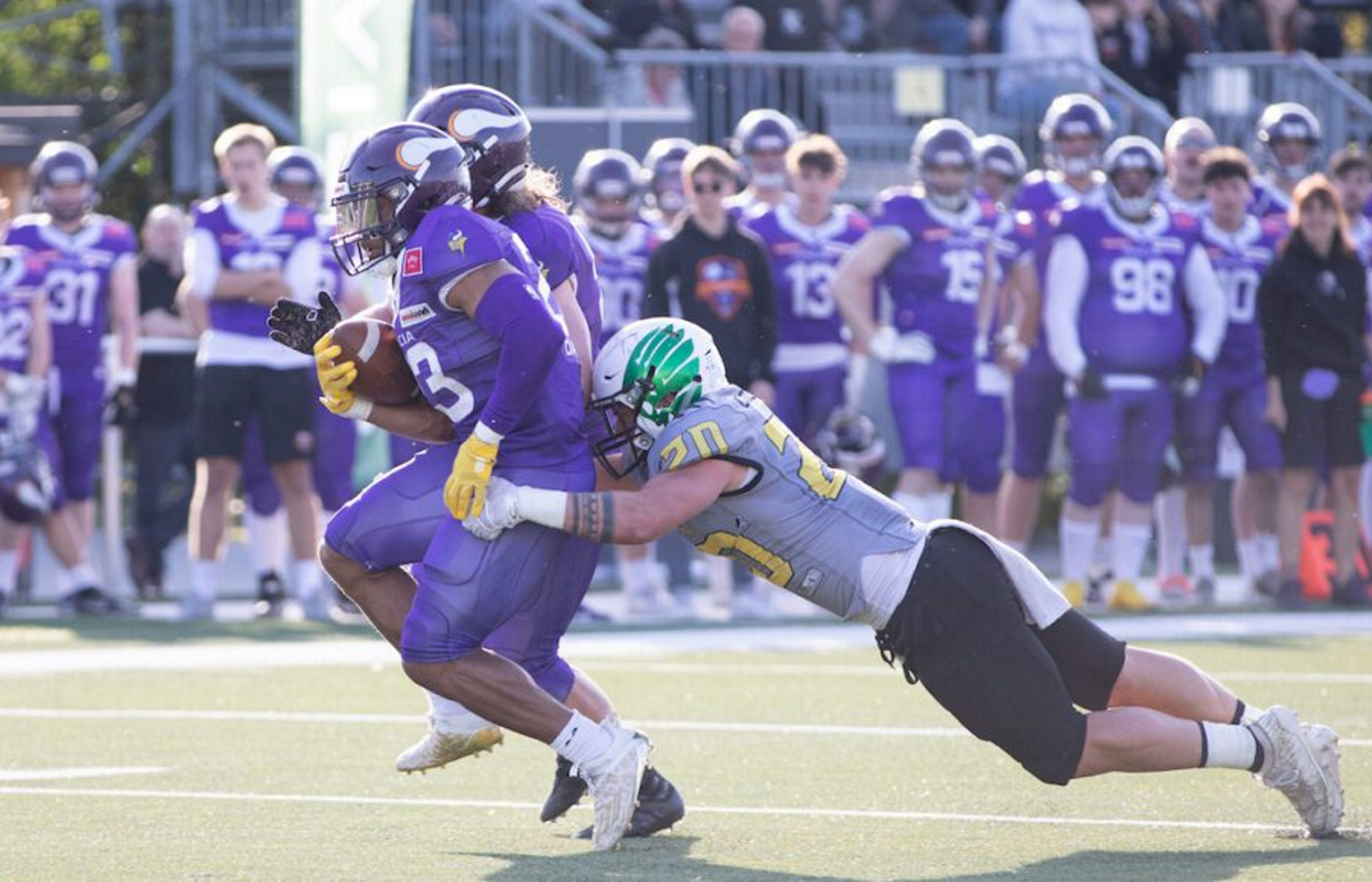Opinion: ELF expansion – The impact of the departure of the Milano Seamen from Italian Football League

Earlier this month, Patrick Esume, Commissioner of the European League of Football and Zeljko Karajica, CEO, sat down in a brightly lit set, packed solid with media representatives. The press conference had been called by the pan-European league to introduce the upcoming 2022 season.
A floor-to-ceiling screen behind the pair ostentatiously displayed the various sponsors and teams that comprised ELF. Between the two sat the Frankfurt-owned championship trophy and packets of main-sponsor Chio chips on either side. Esume and Karajica, usually brimming with confidence, sat sheepishly as a German host sang their praises and introduced the grandeur of ELF.
After their introduction, the two regaled the highs of a 2021 season that culminated in a fantastic showdown between the Frankfurt Galaxy and Hamburg Sea Devils, proclaiming ELF as the best league in Europe – a title that will more than likely become fitting.

Patrick Esume and Zeljko Karajica during 2022 ELF press conference
The 2021 debrief continued as RAN Sports spokespersons gave a detailed, albeit slightly convoluted, breakdown of viewership and market growth identifying China as a target audience. This was followed by a recap of the four new entrants into ELF, each giving a scripted rationale for joining ELF.
But then 15 minutes in, Esume, overflowing with excitement, dropped a bombshell. Three new teams would be joining ELF for the 2023 season: Zurich, Switzerland (Helvetic Guards), Budapest, Hungary (Fehérvár Enthroners) and the Milano Seamen.
The most established of the three is the Seamen who have dominated the Italian league for the past decade. Despite tough competition from the likes of Firenze Guelfi and Parma Panthers, the Seamen have won five of the last seven championships and brought a higher level of play to Italy with their consistency and depth of talent.
Leading from the front since 2017 has been quarterback Luke Zahradka. In just seven games this year the Italian-American has thrown for 2200 yards and 31 touchdowns, showing the rest of Europe he’s ready to make the move to the next level of competition. With Zahradka now working and living in Milan year-round, he is unlikely to be going anywhere else soon.
But the most impressive aspect of the Seamen’s game has been their defense. In their first six games they have allowed just 34 points and 800 yards, forcing ruthless score lines onto their opponents as Zahradka piled it on.

Milano Seamen QB Luke Zahradka Photo: Dario Fumagalli
The Seamen’s move to ELF no doubt came as a surprise to many as it was only 10 months ago that FIDAF, the governing body of American football in Italy, issued a ban on its domestic players competing in ELF. This put Italian players in the precarious situation of losing the ability to play in the domestic league if they were to choose the brighter lights of ELF.
But Esume, ever the salesman and diplomat, traveled down to Italy in April to meet with the league and was able to quickly lift the embargo on Italian players. This begs the question, were the Italians just looking for recognition and admittance into ELF all along?
Now that the Seamen are set to join the league in 2023, what will become of the domestic league? If we take a look at Austria and Poland, two leagues already dealing with the fallout of their top teams leaving for ELF, the future does not look bright.
Despite the Raiders and Vikings each fielding a second team in the Austrian Football League (AFL), the standard of football has dropped off significantly. Each club’s AFL team is now just a glorified feeder for the ELF squad.

Vienna Vikings in action against the Salzburg Ducks during 2022 Austrian Football League season Photo: Andreas Bischof
In Poland, the departure of the Wroclaw Panthers did even up the league but has left each side without a benchmark for what good football really is. To make matters worse, the reigning champions folded before the 2022 season even started, causing an even more bleak landscape for Polish football.
The Seamen have agreed to sport a second team in the IFL, but the depth of talent in Italy may not allow for them to compete with the likes of reigning champions Parma Panthers – who may also want a piece of the ELF-pie next year. A Milan Rhinos and Seamen merger could mitigate this, but whether the rivalry within the city allows for it is another question entirely.
ELF demands uncomfortable growth from leagues around Europe but offers the betterment of football for the community. With an ideal location, deep roster and solid foundation, the Seamen will feel right at home in ELF and compete from day one. It is just an unfortunate truth that domestic leagues will likely act as martyrs for long awaited growth of the sport on the continent.